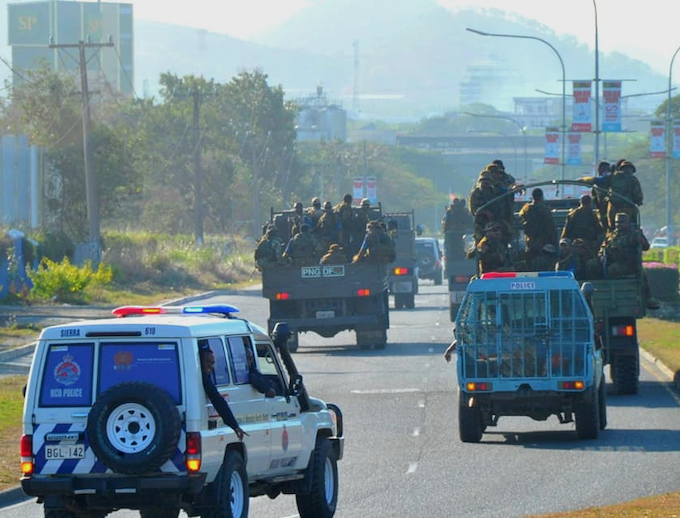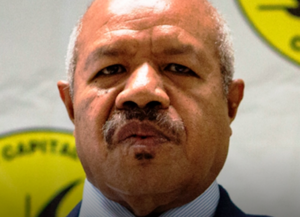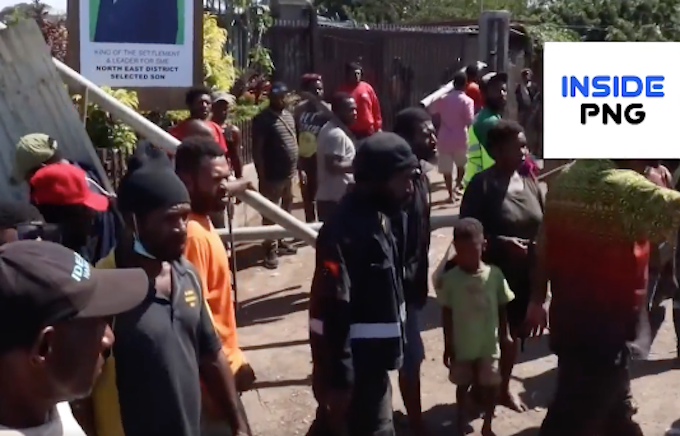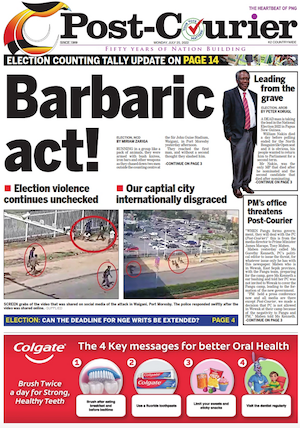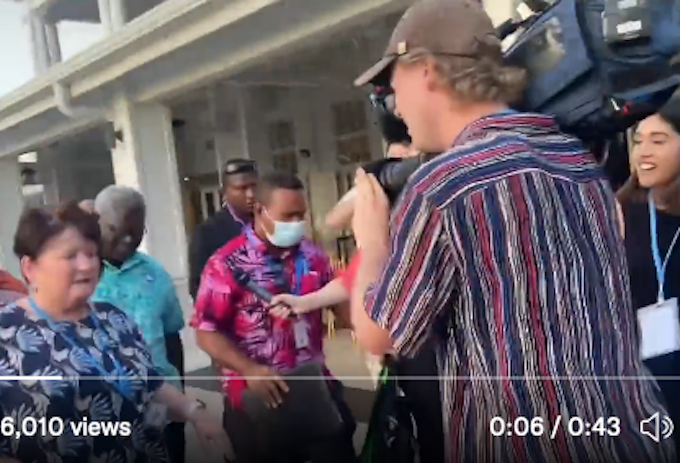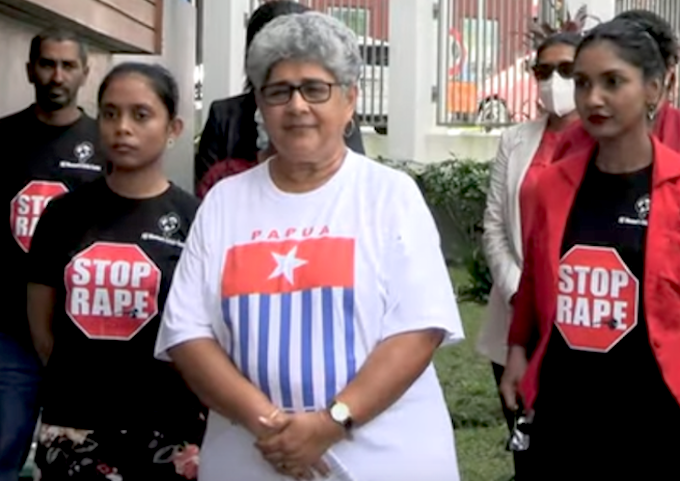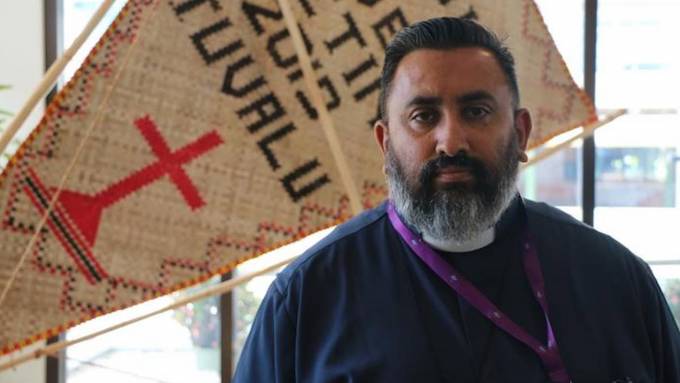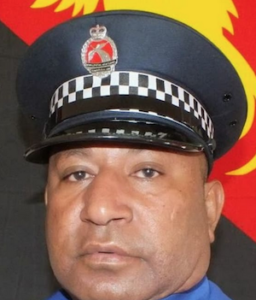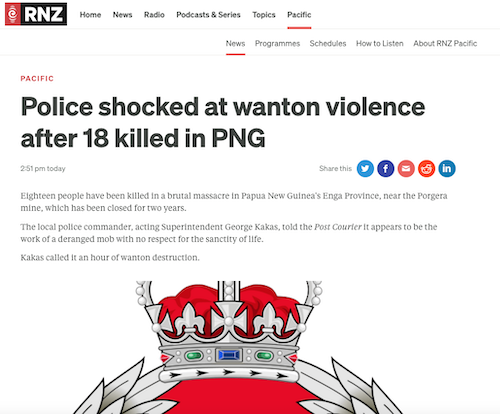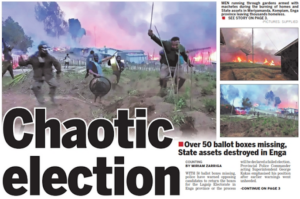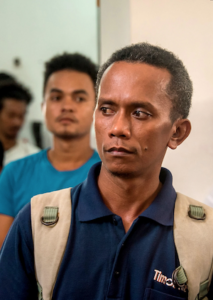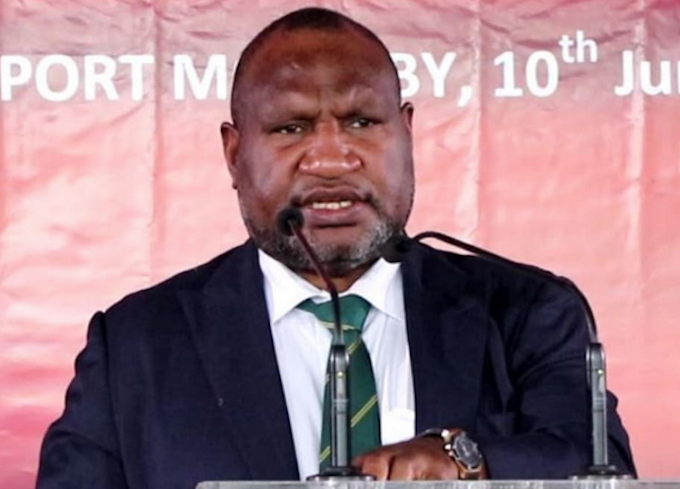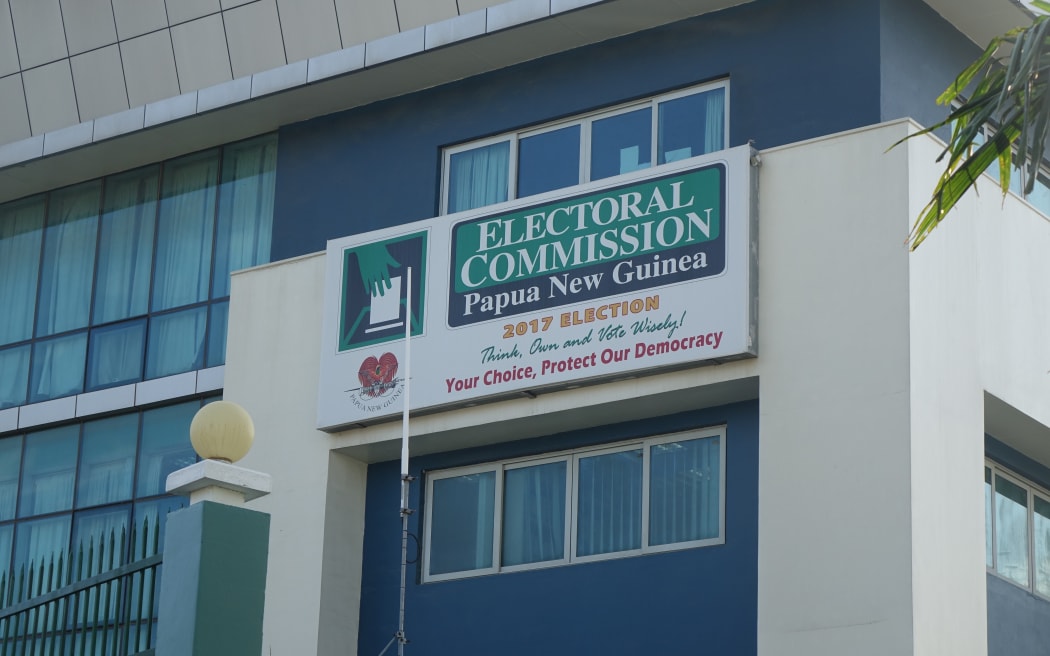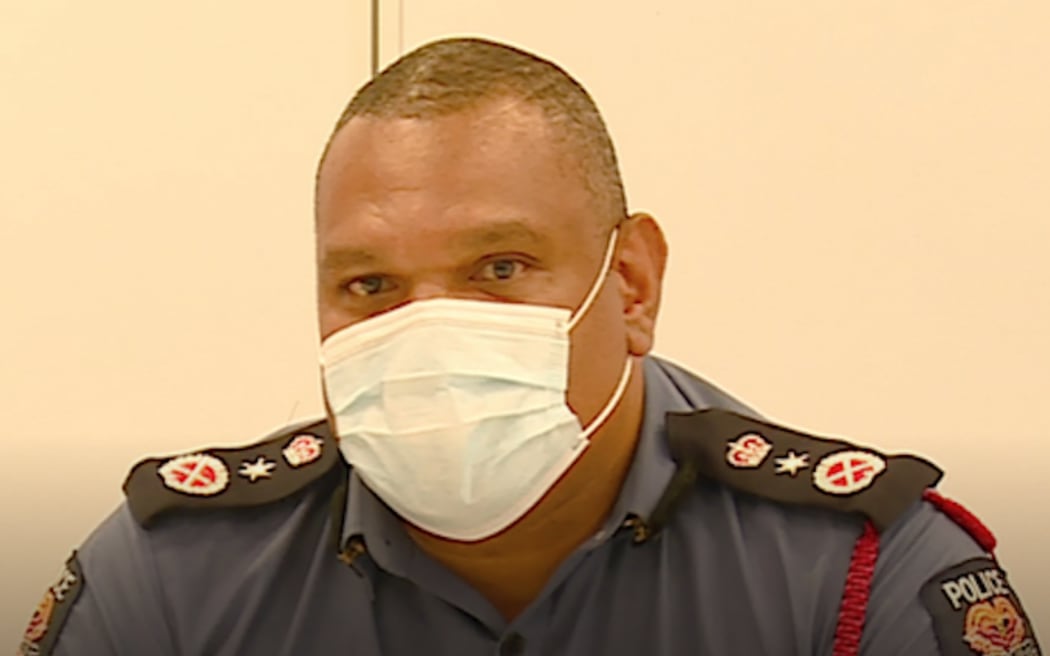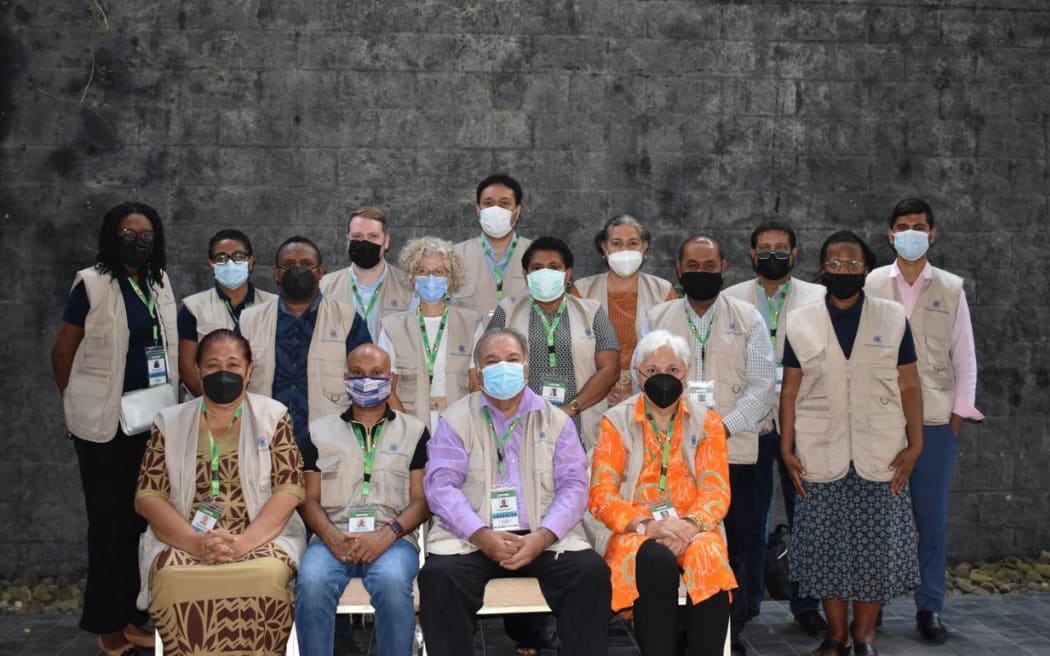Boston officials claim they had no prior knowledge of a march through the city by about 100 members of the white supremacist group Patriot Front on Saturday. Local anti-fascist organizers confronted the marchers, who also attacked a local Black artist named Charles Murrell. We speak to Boston civil rights activist Reverend Kevin Peterson, who is an adviser to Murrell; investigative journalist Phillip Martin, who has documented the rise of the neo-Nazi movement in Massachusetts; and Michael Edison Hayden with the Southern Poverty Law Center. Peterson is calling for an internal investigation into the Boston police over its response to Saturday’s violence. His group, the New Democracy Coalition, is also calling for Boston Mayor Michelle Wu to develop a race commission to explore what would constitute reparations for Black people.
TRANSCRIPT
This is a rush transcript. Copy may not be in its final form.
AMY GOODMAN: This is Democracy Now!, democracynow.org, The War and Peace Report. I’m Amy Goodman, as we turn to Boston, where Mayor Michelle Wu joined federal officials Tuesday to respond to the march through downtown Boston Saturday led by a hundred members of the white supremacist Patriot Front carrying shields and a banner that read “Reclaim America.” Officials claim the Boston Regional Intelligence Center had no warning they were coming. Local anti-fascist activists confronted the marchers. Mayor Wu also said the Boston police Civil Rights Unit is investigating how Patriot Front members were seen attacking a local Black artist and musician named Charles Murrell as police looked on.
Charles Murrell posted online about the attack, writing, quote, “Just another day in the office. Yesterday as I was walking to work, a group of white men wearing masks and holding military weapons were marching on the sidewalk. I was walking past the historic Copley Hotel. I thought it was odd that a protest was happening on the sidewalk and not the street. When I tried to get my phone to record the masked mob, this happened (see photos),” he said. He went on, “Now, fake bot accounts are in my DM and on my social media pages trying to instill fear into myself and community. I assume these are the same masked white men. I share this to first say, things have not changed much. Secondly, this is why I do the work that I do with passion,” Charles Murrell wrote.
Charles is not doing interviews while he seeks legal advice, but he did speak out Monday.
CHARLES MURRELL: I am appalled that even as a healer, I have to get my cup poured into in this incident. But in this incident, I will continue to pour into other people’s cup as a way to pour into my own cup.
AMY GOODMAN: For more, we’re joined by three guests. In Boston, Reverend Kevin Peterson, longtime civil rights activist, founder of the New Democracy Coalition, adviser to Charles Murrell, is with us. In Cambridge, Phillip Martin, an award-winning journalist and senior investigative reporter for GBH News Center for Investigative Reporting, where he recently wrote a piece headlined “It is happening here: Massachusetts has a growing neo-Nazi movement.” And still with us, Michael Edison Hayden, senior investigative reporter with the Southern Poverty Law Center, who focuses on internet radicalization and far-right extremism.
We welcome you all to Democracy Now! Reverend Peterson, let’s begin with you. Explain — I’m sorry we can’t have Charles Murrell on today, but you are his close friend and adviser. Can you tell us more about what happened on Saturday?
REV. KEVIN PETERSON: I’m not sure if I can tell you more about what happened beyond what you’ve already said, but we do know that Mr. Murrell is currently traumatized. He has a focus around racial healing in this city. He uses it through the arts. He believes that this is an opportunity where he can redirect the trauma that he experienced in terms of engaging these children of the KKK on Saturday, use that experience to engage the city, particularly Mayor Wu, in terms of changing things around, changing the narrative of the city.
Boston is not unlike other places across the United States with regard to endemic racism. Boston was founded during the slave trade. The legacy of slavery and systemic oppression towards Black people persists even into 2022. Just two weeks ago, the Boston City Council apologized for its complicity in the slave trade and ongoing systemic oppression.
Mr. Murrell’s experience is reflective of that systemic oppression, that this environment in Boston, I believe, provided a way through which — or rationale through which the children of the KKK came into Boston to try to spew their toxin and their hate.
AMY GOODMAN: Reverend Peterson, how did the police respond? Where were they when Charles was being attacked?
REV. KEVIN PETERSON: Well, Mr. Murrell’s narrative is that the police were in close proximity to him. And in fact, Mr. Murrell suggests that he engaged the police for help, but that help at that point wasn’t forthcoming. So, we have at this point different narratives coming from the administration, from the police, from Mayor Wu, and Mr. Murrell’s account. I’m confident to say that I’ve had a number of conversations with Mr. Murrell, and he’s clear that the police were present, he asked for help, the police officer, or one of them, claimed that they were overwhelmed and they couldn’t respond to the assault that took place on him. That’s disturbing.
Even more disturbing is the fact that such an organized group of white supremacists, the children of the KKK, descended on the city and marched through the streets with brazen activity, unmonitored for the most part by law enforcement. It left thousands of Black citizens, of course, vulnerable to any kind of racial violence that they would have fostered. And in fact, Mr. Murrell became a victim of that racial violence.
AMY GOODMAN: And we’re showing video from Twitter of these people, who have khaki pants, which of course reminds me of the University of Virginia “Unite the Right” rally —
REV. KEVIN PETERSON: It does.
AMY GOODMAN: — and dark shirts, either long-sleeve or short-sleeved, and then white masks over their faces, and baseball caps. Phillip Martin, you’re with GBH News. You wrote an extended piece in May called “It is happening here: Massachusetts has a growing neo-Nazi movement.” Now, the mayor, Michelle Wu, said they had no idea these people were coming this weekend. But this is the third march this year. Explain how you see this movement growing. What’s happening? Why Boston?
PHILLIP MARTIN: First of all, thank you for having me here, Amy.
And I find it — I’m a bit incredulous that the Boston [inaudible] the mayor, others seem to have been taken by surprise. Granted that this was a [inaudible] demonstration. They should not have been surprised [inaudible] taking part in flash [inaudible] exits on freeways, holding banners over freeways, leaving graffiti everywhere, defacing Black Lives Matter signs. Across the state, including Brockton not long ago, there have been reported assaults by this group and a similar group, NSC-131, for a long time. And so, I can see this as a — without question, they did not know about this, it seems, but to be taken by surprise is — I mean, I’m incredulous over that, given the growing activity of these organizations over the past few years.
And you have cited it correctly with the Unite the Right rally that you mentioned. That’s where the Patriot Front began, by this individual, Thomas Rousseau. And what’s happening in Boston is not that dissimilar from what’s happening around the country. But a Unicorn Riot treasure trove of documents revealed that Massachusetts, New England are the areas that they consider prime recruiting grounds, despite the region’s reputation for liberalism. As Reverend Peters was just pointing out, there are multiple contradictions that make their presence here [inaudible] this community, though there’s also, I should point out, massive pushback against these groups, against Patriot Front, by people on the ground — Jewish organizations, Black organizations, anti-fascists, academics, others. So they are not getting a warm reception.
That’s the reason I believe they decided to descend on the area over the weekend. It gave them the attention they wanted. They are in competition with NSC-131 but also in collusion with them. NSC-131 has had a presence in the area, protesting at Brigham and Women’s Hospital in January, taking part in a demonstration at the St. Patrick’s Day Parade in March, where they displayed a Boston is — “Return Boston to the Irish” sign, or something to that effect.
And so, again, this, Amy, is something that has been taking place. It is a growing movement, growing, as ascertained by observation from those who study fascism, that these are groups that had two or three people at rallies maybe a year ago, three years ago, and now are able to get 30 people at rallies, people largely from this area, though this 100 who had descended on Boston over the weekend, without question, they came from various parts of the country. And it’s believed that Thomas Rousseau was among them.
AMY GOODMAN: That Rousseau was among them, which brings me back to Michael Edison Hayden. Michael, you’re with the Southern Poverty Law Center. We last had you on giving us background on the Patriot Front. So, talk more about who Rousseau is, how this group was founded, what it’s doing, why in Boston, and before that, what, there were protests in Philadelphia, these historic American cities.
MICHAEL EDISON HAYDEN: [inaudible] —
AMY GOODMAN: Michael —
MICHAEL EDISON HAYDEN: I like that — yes.
AMY GOODMAN: Go ahead.
MICHAEL EDISON HAYDEN: Oh, sure. Yeah, I like that phrase, “children of the KKK.” That was great. You know, I think that they are not the KKK yet, but they — in its heyday, but, boy, do they want to be.
And, you know, there was a group called Vanguard America that marched at Unite the Right, and you may remember James Fields, who murdered Heather Heyer. He actually marched with that group. And they kind of rebranded under this veil of patriotism, and kind of to try to pull from the Republican Party shtick and make a more marketable version of what is essentially neo-Nazism.
And they have had some success at building a movement across the country. They’ve had people across the country. They have absolutely, you know, been successful at doing these marches where there are about, you know, anywhere between 30 and 100 people marching on the street.
But yeah, they did something also on July Fourth last year, or in the July Fourth weekend, regarding — like in Philadelphia, for example. They are picking these places that have historical importance in the United States. You know, their slogan is “Reclaim America,” and it’s this idea of restoring America to their imagined past, this — well, certainly America does have a deeply racist past, but they envision this perfect version of the United States that is going to come from their activism, that’s going to be essentially just a white supremacist ethno-state.
AMY GOODMAN: And how do they organize online?
MICHAEL EDISON HAYDEN: Yeah, I mean, they — you know, they’re all over Telegram. They were using Discord. They are essentially building little cells across the country and communicating with each other this way. They don’t often reveal their names to one another until they get to know each other in person. They are trying to lock down their communications, but, quite frankly, they’ve been poor at it, because they are frequently getting ID’d by anti-fascist activists all over the country and also by our organization.
AMY GOODMAN: And their connection to January 6th, the Patriot Front members marching, part of President Trump’s insurrection?
MICHAEL EDISON HAYDEN: No, they — so, they are superficially anti-Trump. They’re superficially anti-Republican Party. But they work kind of in tangent with the Republican Party, in the sense that they run parallel to them. You know, for people that believe that Trump is too cozy with Jewish people, the Patriot Front is there to kind of recruit you. It is their — they do essentially the same things. You know, you see Stephen Miller’s America First Legal is going to be attacking all kinds of things that he describes as “woke.” What does that really mean? It’s LGBTQ+ rights, stuff like, you know, this critical race theory bogeyman that they keep trotting out, whatever else. It’s sort of the same stuff that Patriot Front is talking about, but this is for people who are further along the line of radicalization and don’t want to associate themselves with the Republican Party. But they absolutely work in tandem with them, and they run parallel to them.
AMY GOODMAN: And, Phillip Martin of GBH News, you report about this, that members were represented in D.C. during the insurrection.
PHILLIP MARTIN: That’s right. This is, of course, before they branded themselves — rebranded themselves as Patriot Front. And you had members of NSC-131 present. They, of course —
AMY GOODMAN: What does ”NSC” stand for?
PHILLIP MARTIN: Nationalist Social Club, and the 131 is alphanumeric code for anti-communism. They consider, of course, anyone anti — they consider anyone communist, whether they be a liberal, a moderate, a so-called RINO within the Republican Party, people advocating for equality. The notion of communism [inaudible] they have incorporated into their talking points, in which they see anyone, again, who oppose fascism as communist. But they are neo-Nazis. They are described as a small army of neo-Nazis by both the Southern Poverty Law Center and the Anti-Defamation League.
And so, yes, they started off in Charlottesville. They have — Thomas Rousseau has attempted to grow this movement based on some of the grievances that were — my colleague from Southern Poverty Law Center was just talking about, within — that have been amplified by the Republican Party. They have been amplified and animated by the so-called [inaudible] theory of — and believing that that is something that people are in fact reacting to.
And you can see some of the comments that appear on social media, where, in fact, here in Boston, you found individuals who were condemning the Patriot Front, but you also found comments on Twitter and Facebook, folks were saying, “Well, what about the communists? What about the Democratic Party? What about the antifa? What about Black Lives Matter?” where they basically try to create this false equivalency that these groups, the Patriot Front and others, are simply the flip side, and thus they have — and it’s mythical, the whole notion of bothsidesisms in the context of fascism.
AMY GOODMAN: And —
PHILLIP MARTIN: But, anyway, the point is — I’m sorry. Go on.
AMY GOODMAN: And, Phillip, the role of the police, the reverend describing — or, actually, Charles Murrell himself saying they didn’t help him, and the mayor saying they had no idea this was happening? I think we’re going to have — we will end it there.
PHILLIP MARTIN: We have to be incredulous of whether — if the police were nearby and they did nothing, that’s a problem. If the police were not in the proximity to where this man was being beaten, then that’s a problem also. It means that they really weren’t monitoring well this procession of neofascists through downtown Boston on Fourth of July weekend.
AMY GOODMAN: And finally, Reverend Kevin Peterson, you know, a news conference was called with Black leaders. You were among them.
REV. KEVIN PETERSON: Yes.
AMY GOODMAN: What are you calling for now?
REV. KEVIN PETERSON: Well, we’re calling for a couple things. One is, as much as the police department is investigating what crime occurred, what civil rights were violated against Mr. Murrell, we’re also calling for Boston, the police or the mayor, to conduct an internal investigation in terms of police activities on that day on site. Were there police present? We asked for the release of videotape from Starbucks, which captured the incident, can perhaps identify more succinctly if the police were present. We’re asking for any body-camera visuals that might be present.
Beyond that, Amy, we’re asking the mayor to take a deep dive into engaging in more robust conversations around race in a city that has been dogged by race for so long. Those pictures of Mr. Murrell are reflective of the racial legacy in the city of Boston that persists. Beyond the conversation, we also call for a race commission, where the city of Boston will bring to fore the enormous resources in the city of Boston in terms of the academic and legal community to explore the legacy of racism up until 2022, provide information, perhaps throughout the schools, but throughout the neighborhoods, of course, so that the residents of Boston can learn more about what racism is and how it is impactful in its subtle and most obvious ways.
And then we ask for the commission to look into what would constitute repair or reparations in the city of Boston. How do we address the historic wrongs fostered upon Black people as it relates to the legacy of slavery and systemic oppression? How do we address those issues of unequal housing situations with relation to Blacks? How do we address the unequal health morbidities? How do we address income inequality with regard to Blacks and whites in the city of Boston? Those things are enormous. They reflect an incredible gap in terms of how Blacks maintain their lives in Boston against the privilege of white lives or how whites are privileged.
So we ask for something comprehensive, something carefully thought through. We ask the mayor to move beyond the soothing words and apologies and get to some substantive policies and actions that brings Boston into the current situation where we’re trying to address the issue of racism in a more substantive way.
AMY GOODMAN: Reverend Kevin Peterson, we want to thank you so much for being with us, founder of the New Democracy Coalition, speaking to us from Boston. Phillip Martin, investigative reporter with GBH News, we’ll link to your pieces, “It is happening here: Massachusetts has a growing neo-Nazi movement” and your latest piece. And Michael Edison Hayden with the Southern Poverty Law Center.
Coming up, a new Supreme Court case threatens another body blow to our democracy. We’ll speak with the former law clerk for the retired Supreme Court Justice Stephen Breyer. Yes, we’ll speak with Carolyn Shapiro, professor. Stay with us.
This post was originally published on Latest – Truthout.
